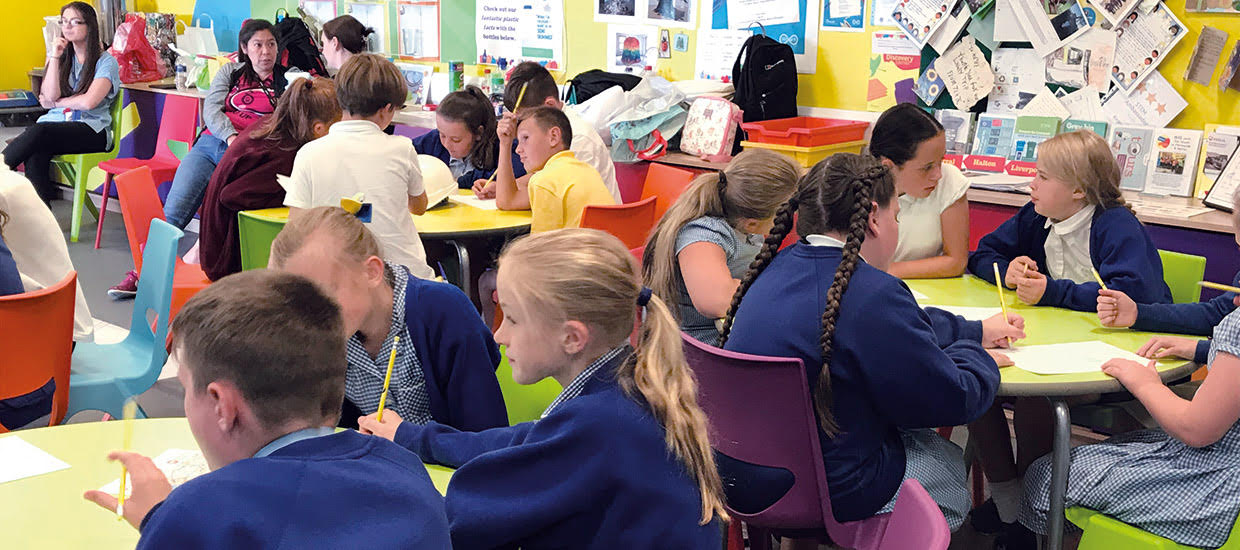Engage your alumni
Whether you’re starting from scratch or building on the success of a reunion, Justin Smith explores how you can nurture relationships with former pupils

This suggests that, nationally, state schools could be missing out on donations totalling upwards of £100m a year, with each secondary school potentially able to raise an average of £30,000 a year from its alumni network.
For Future First, which sets up alumni networks for state schools this is a missed opportunity.
An open door
Many people feel a strong bond or connection to their old school, but the key to making them active contributors is to develop a sense of
Develop closer ties
Start small. Make sure you capture data on students before they move on. Secondary schools, in particular, can gather data on student interests and gauge their level of potential future involvement. When it comes to identifying potential support among former pupils, technology can help. Prospect-searching, wealth-screening and other analytical tools can provide raw data, while alumni management software offers communications platforms to help seek out and engage with potential donors.
However, there
It
Engaging alumni as volunteer role models will help raise the aspirations of current pupils. And using former students
Use social media
Reaching out to alumni requires a different approach to communicating with existing students and stakeholders. It
- Create a social account that
’s specifically for your alumni. If resources are tight, enlist the help of trusted past students. - Provide your recent alumni with valuable resources. Include links to CV-building tools, job boards, further education advice and career blogs. Give them ongoing support and a reason to keep coming back. Appeal to their sense of nostalgia.
- Posting images and videos from the past can trigger strong emotions and encourage engagement.
‘Name the teacher/building/year ’ is a great way to get the conversation rolling. - Regularly showcase the current activities of alumni. But don
’t just focus on the conventionally ‘successful ’ ones. Look to those who are making contributions to the community or giving back in other ways. Make everyone feel welcome. - Create a #hashtag for school leavers to share their favourite photos from their year. You can easily turn those photos into a timeline video (using a tool such as Filmora) to build your followers.
- Facebook is a great platform for promoting alumni events. Not only does it build interest by showcasing those attending, but other friends are also notified, spreading the word about your event.
- Make your communications come alive. Take the time to engage and respond to your audience, as well as encouraging conversation among your followers. Your efforts may not be immediate, but persistence does pay off!
Case study: alumni workshops in Kirkby, Liverpool
‘We started working with Future First because we were still in touch with a lot of former students, and wanted to make better use of these connections. Our school has a family-centred ethos. Lots of our parents are former pupils so we thought we
The alumni workshops raised the self-esteem of the children massively and widened their ideas of what they could do in the future. The volunteers had a personal impact on every child, showing them that they could do anything they wanted if they worked hard. One of the children said the workshops had helped him become a better team member. At the start, his group were arguing but the volunteers showed the children how to work collaboratively.
Company director Brad Ledson returned to Saints Peter and Paul as a workshop volunteer. He says:
I
The one piece of advice I wanted the children to take away was,
- Justin Smith is MD of Chameleon Consulting and Training Ltd, which provides marketing and fundraising support to schools. @jus_chameleon
Download our guide
Download a print-friendly PDF version of our guide to establishing an alumni network.
More from Justin Smith
